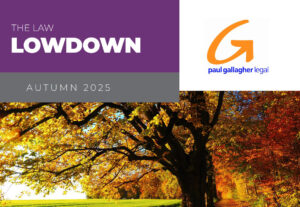Incorporated societies law needed a face lift. The statute which largely regulates the affairs of the many thousands of incorporated societies in New Zealand was passed in 1908!
Since that time the whole sector has grown considerably. These days incorporated societies can be significant operations. The Incorporated Societies Act 1908 simply doesn’t fit well with modern needs and provides little practical guidance for the people running societies in relation to operational matters.
So the Incorporated Societies Act 2022 was passed and largely comes into force in October 2023. It is intended to make incorporated societies stronger legal entities, assist with self-governance, and provide constructive options when disputes arise.
Key changes
- Whereas the 1908 Act did not require a society have a committee, only officers, the 2022 Act requires a society to have a committee, comprising 3 or more qualified officers.
- Officer duties are more clearly specified. They must:
- act in good faith and in what the officer believes to be in the best interests of the incorporated society.
- exercise their powers for proper purposes.
- exercise the care and diligence that a reasonable person with the same responsibilities would exercise.
- not act, or agree to the incorporated society acting, in a manner that contravenes the 2022 Act or constitution of the incorporated society.
- not agree to, cause or allow for, the activities of the incorporated society to be carried on in a manner that is likely to create a substantial risk of serious loss to creditors.
- not agree to the incorporated society incurring an obligation unless the officer believes on reasonable grounds that the incorporated society will be able to perform the obligation.
- Some incorporated societies (to be prescribed in regulations) will need to have their financial statements audited.
- All incorporated societies will need to have a procedure contained in their constitutions to resolve disputes.
- Factors that will disqualify a person from being an officer of an incorporated society are specified.
- There will be an ongoing minimum number of members, whereas the 1908 Act only requires a minimum number on incorporation.
- An amalgamation regime is introduced, a simplified version of what is provided for companies in the Companies Act 1993.
- Also introduced is a method for members to obtain information to facilitate better officer accountability.
- There is provision for certain criminal offences, such as officers dishonestly using their officer position, providing false or misleading statements (knowing them to be so), fraudulently using incorporated society property and falsifying records, documents or the Incorporated Societies Register.
So what will this mean for Incorporated Societies?
- If you want to register a new Incorporated Society, then it will need to be under the new Act.
- For existing societies there is a transition period, ending in April 2026, for the re-registration of that society to be effected.
But should you get your re-registration under way now?
There is a good deal of commentary about some of the changes, with concerns around increased liability for officers – which more closely align with Directors’ duties under the Companies Act 1993.As a result of these new duties and the wide definition of “officer” in the new Act, it may be wise to consider obtaining professional indemnity cover for officers. MBIE is putting together Regulations to support the new Act, and these may well contain further assistance for societies in their decision-making process around re-registration under the new Act.
There are reasons to consider re-registration before April 2026.
- A failure to re-register during this window could mean the society will cease to exist.
- The new Act requires a constitution and even if a society has one now, there are many aspects of the new Act that are likely to mean changes. The need to have a disputes process is likely to improve the operation and transparency of societies.
- A practical consideration may be that having a 2022 Act compliant and up to date society with a revised Constitution may be seen by entities dealing with the society in a favourable light. This may impact on a society’s ability to raise funds and grants, especially if they are also registered charities.
- Generally re-registration will improve the administration and governance of societies.
Can we help?
Yes. We can assess your society’s circumstances and review its current governance arrangements. We can then provide advice to you on how to best handle the re-registration process. While April 2026 sounds a long way off, consultation with members and reviews of processes will take time. An early review will identify what the best approach will be and reduce time stress.



